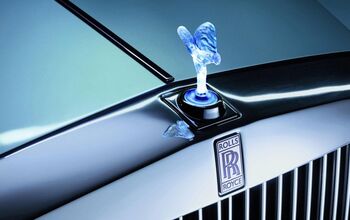"Zero" Demand For An Electric Ferrari

Ferrari clients aren't enthusiastic about electric cars, and the brand is responding appropriately.
Key Points
- Ferrari has delayed its second all-electric vehicle from 2026 to 2028 due to a lack of customer demand, with sources citing “zero” current interest in high-performance EVs.
- The brand’s first EV, still expected in 2026, will be a low-volume symbolic model, while broader electric production has been postponed to avoid overshooting market appetite.
- Ferrari joins other Italian performance brands—Lamborghini and Maserati—in slowing EV rollout plans, reflecting a wider industry shift away from earlier electrification timelines.
According to a report from Reuters, the Italian automaker will push the debut of its second electric car back from 2026 to 2028, citing a lack of customer demand. The news is unsurprising—Ferrari has been dragging its feet on its electric vehicle program for years. Rivals like Porsche committed wholeheartedly, only to walk back those commitments as demand failed to meet reality.
The first Ferrari EV is still expected to debut next year, and is described as a low-volume, symbolic model, meant more to satisfy Ferrari’s public image rather than a virtue-signaling full-scale electric future. The second vehicle, which was originally intended to be a more mainstream offering with higher production targets, is now being postponed due to what has been described as "zero" demand from customers.
That hesitation is a reflection of wider sentiment in the supercar market. While Ferrari typically moves 5,000 to 6,000 units of each core model over a five-year run, such volumes would be reportedly impossible for Ferrari with an all-electric car. The brand will be making all EV components in-house—rather than partnering with suppliers—further complicating matters.
Ferrari is far from alone in adjusting its EV timeline. Lamborghini pushed its first electric model from 2028 to 2029, while Maserati has canceled plans for an electric MC20. Many of the world's greatest performance car makers have been working under the assumption that regulatory and market forces would compel an earlier transition to EVs, but that seems not to be happening as the public asserts its desires through how it spends its dollars.
For Ferrari, waiting could be a blessing. With high development costs and fleeting buyer interest, launching a core EV before the market is ready could dilute the brand’s reputation. If demand eventually materializes, Ferrari will still be well-positioned with dry powder. If it doesn’t, the company avoids committing to a technology its core customers haven’t yet embraced.
In the meantime, the brand will stick to its hybrid roadmap. Ferrari’s near-term lineup will continue to be anchored by plug-in hybrid V6 and V8 models.
Become an AutoGuide insider. Get the latest from the automotive world first by subscribing to our newsletter here.

An experienced automotive storyteller and accomplished photographer known for engaging and insightful content. Michael also brings a wealth of technical knowledge—he was part of the Ford GT program at Multimatic, oversaw a fleet of Audi TCR race cars, ziptied Lamborghini Super Trofeo cars back together, been over the wall during the Rolex 24, and worked in the intense world of IndyCar.
More by Michael Accardi




































Comments
Join the conversation
At 30mpg, 60lbs of gas takes you 300 miles and weighs 0 upon arrival.
An EV hauls a 1,000lb battery the entire way; grossly wasting energy.
What a surprise! (nobody).